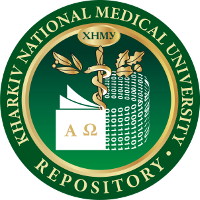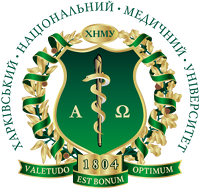Please use this identifier to cite or link to this item:
http://repo.knmu.edu.ua/handle/123456789/31621| Title: | Center of palliative medicine at kharkiv national medical university: modern challenges and development strategies |
| Authors: | Kapustnyk, Valeriy Myasoedov, Valeriy Riga, Olena Orlova, Natalia |
| Keywords: | medical care palliative care patients quality of life |
| Issue Date: | 2021 |
| Citation: | Center of palliative medicine at kharkiv national medical university: modern challenges and development strategies / V. Kapustnyk, V. Myasoedov, O. Riga, N. Orlova // Inter Collegas. – 2021. – Vol. 8, No.4. – P. 196–200. |
| Abstract: | In most countries of the world, palliative care is an integral part of quality medical care, which includes comprehensive medical, social, psychological, and spiritual support for critically ill patients and their relatives. According to the WHO, every year about 20 million people worldwide need palliative care at the end of their lives. There are many more who need palliative care until the last year of their lives. Thus, the total number of people who need palliative care annually is about 40 million. It is estimated that of the 20 million people in need of end-of-life palliative care, 78% live in low- and middle-income countries; about 67% are elderly and about 6% are children. However, only 14% of people who need end-of-life palliative care receive it. Palliative care considers the principle of respect for patients' decisions and aims to provide practical support to their family members during illness and in the event of a patient's death to overcome grief over the loss of a loved one. The WHO's global strategy for health care, based on human approach and integration, is to strengthen palliative care programs for patients with various diseases. Despite the fact that some steps have already been taken in Ukraine towards the development of palliative care, there are still some problems: lack of qualified medical staff; lack of relationships between primary and secondary, tertiary care and coordination; imperfect system of informing medical workers about ensuring the right to anesthesia for seriously ill patients; lack of a sufficient number of pharmacies licensed to operate controlled medicines; lack of interagency programs in the field of palliative care. |
| URI: | http://repo.knmu.edu.ua/handle/123456789/31621 |
| Appears in Collections: | Наукові праці. Кафедра педіатрії № 1 та неонатології |
Files in This Item:
| File | Description | Size | Format | |
|---|---|---|---|---|
| Центр Паліативної Медицини ХНМУ.pdf | 146,41 kB | Adobe PDF | View/Open |
Items in DSpace are protected by copyright, with all rights reserved, unless otherwise indicated.

